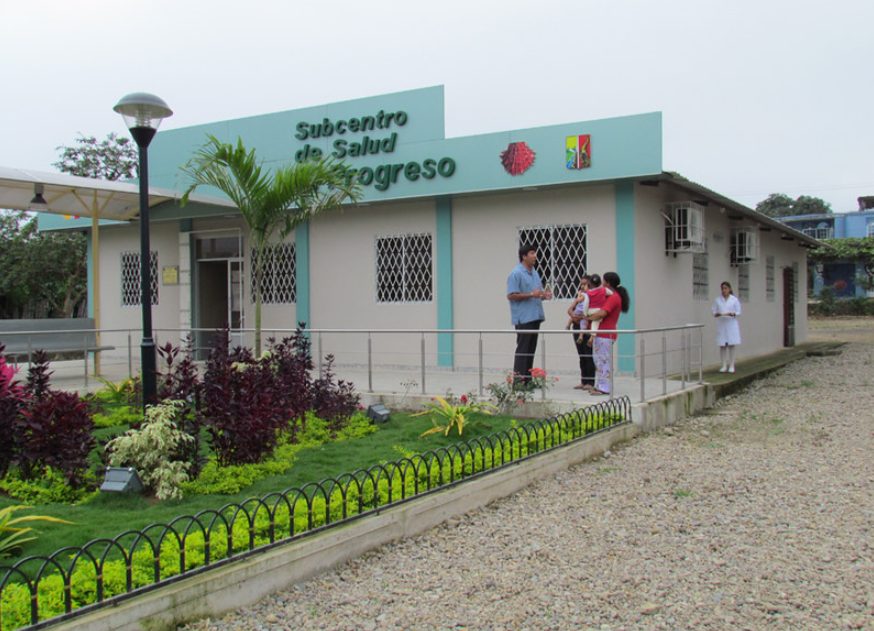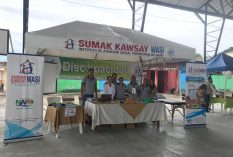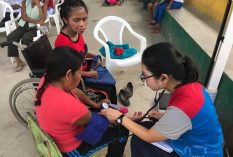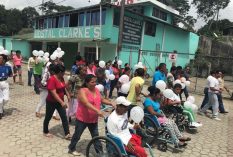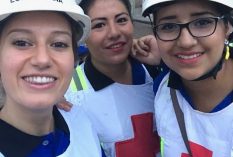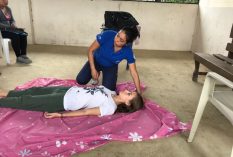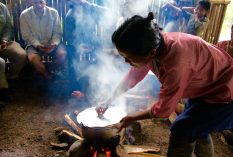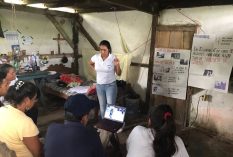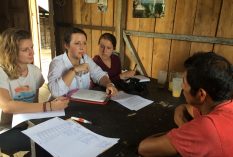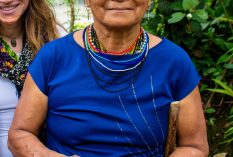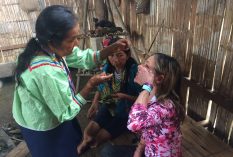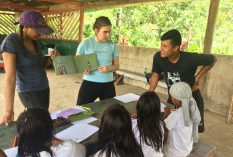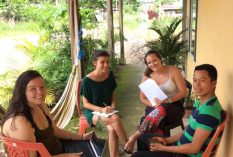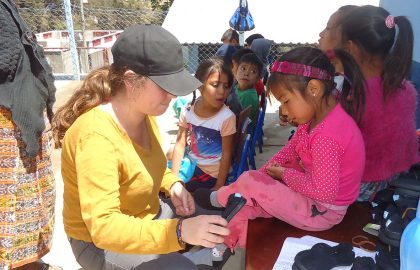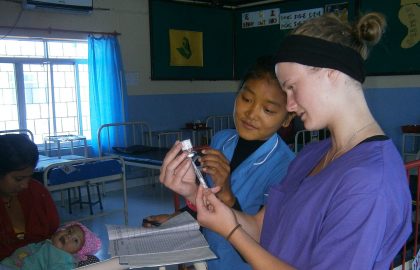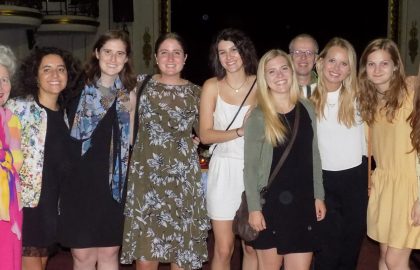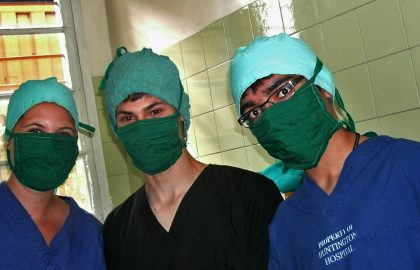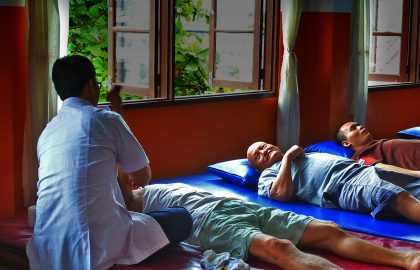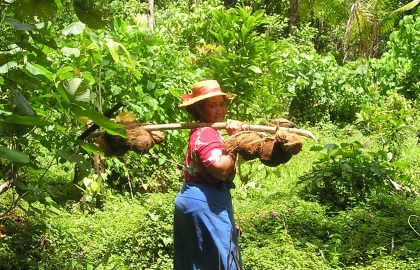Description
Location: Tena, Ecuador
Duration: Minimum 4 weeks (flexible for min. 2 weeks depending on intern’s qualifications)
Start Dates: Project is ongoing, and you can join at any time, depending upon availability
Cost: $750 for the 1st week + $550 for each additional week (1 month minimum is recommended) – see ‘Costs’ tab for further details
Benefits:
-
Gain practical experience in public health and rural medicine.
-
Improve medical Spanish in real-world settings.
-
Support local hospitals and clinics in underserved communities.
-
Learn about Indigenous health practices and cultural resilience.
-
Participate in public health campaigns and community wellness initiatives.
-
Experience daily life in the Amazon through homestays with host families.
Introduction
Gain hands-on experience in public health and medicine while living in the heart of the Amazon. This is an opportunity for passionate and curious interns to explore healthcare delivery in rural and underserved communities while strengthening their medical Spanish skills. Interns are placed with local hospitals, clinics, or public health organizations, supporting efforts to strengthen health systems and promote wellness in both clinical and community-based settings.
In addition to shadowing healthcare professionals and contributing to public health campaigns, interns live with host families in Indigenous communities—offering a broader view of health and healing that includes food systems, forest ecology, cultural resilience, and everyday life in the Amazon. This immersive, intercultural internship invites you to see public health through a much wider lens.
Daily Life
After orientation in the city of Tena, interns settle into their host communities and begin to build relationships with their host families and placement teams. Mornings might start early with a cup of guayusa tea before heading to a health center or hospital to observe local doctors, nurses, and public health workers. Some days you’ll support rural health visits or shadow workshops on topics like nutrition, reproductive health, or disease prevention. Other days might be spent creating brochures, analyzing local data, or helping to coordinate school health campaigns.
Afternoons could include time in the pharmacy or dental clinic, or exploring the nutritional benefits of plants grown in the chakra. Interns interested in traditional medicine can connect with local healers or join their host families in collecting and preparing medicinal plants. Evenings and weekends are filled with shared meals, hikes, storytelling, and the opportunity to reflect or for free travel time with other interns of friends you meet along the way.
Travel & Accom.
The best airport to fly into is Mariscal Sucre International Airport (UIO) in Quito, Ecuador’s capital. Interns need to arrive to Quito no later than the night before their orientation begins. Quito is only 4 hours from Tena, the main city in the Napo Province. On the morning of orientation, a staff member schedules a taxi to pick interns up and bring them to Tena for training; they just have to pay the driver upon arrival.
Interns stay in Tena during orientation, and the cost of the accommodation is provided. The rest of the program is spent living with a local host family. This is an amazing opportunity to immerse in the local community, learn about the culture, and practice Spanish. Host families provide 3 meals per day, bedding, and a place to do laundry.
Requirements
We recommend that interns have an intermediate level of Spanish proficiency (or a strong motivation to learn quickly before and upon arriving!), and bring knowledge in their area of research if looking to do a personal project. Interns are expected to finance their own travel costs (international and while on site).
Further requirements include:
- Minimum 4 weeks commitment, recommended 8-12 weeks (flexibility for a minimum of 2 weeks however this could affect the price).
- Academic and/or professional experience in a related field
- Full travel & medical insurance
- Necessary vaccinations
- Necessary visa costs (Most nationalities are granted a 3-month tourist visa automatically upon arrival, and you can extend this for 3 more months for a fee while in-country. Always check specific visa requirements based on your nationality).
Costs
$750 USD for the 1st week, $550 USD* for each week thereafter.
* Currency conversions are approximate. Use xe.com for up to date currency conversion rates
** All payments incur a 5% bank transfer fee
*** Places are confirmed with a 1 week deposit.
What’s Included:
- Accommodation during orientation
- Accommodation and 3 meals a day with a host family. Includes a private room, bathroom, all bedding, and place to do laundry
- Guided pre-departure preparation
- In-country orientation that addresses risk management, culture shock, cross-cultural adaptation skills, history/culture/politics of Ecuador and the Amazon, team-building, goal-setting, and more
- 1:1 check-ins every week
- 24/7 emergency support
- Network of doctors, therapists, and Spanish tutors in-country
- Access to network of experts and information databases for research support
- Exit interview and end-of-program reflection
- Alumni group and future references
What’s not included:
- Costs of flights and visa
- Costs of vaccinations
- $15 per day for food during orientation training
- Personal transportation
- Any other activities outside of scheduled program activities (white water rafting, yoga, workshops, guided jungle hikes, etc.)
Full assistance will be provided in getting all these arranged if you choose our Premium Support.
Premium Support Upgrade
We understand there’s a great deal to plan and organise for your trip. When booking a Placement, many of our participants choose to purchase our Premium Support Upgrade to benefit from the expertise, knowledge and experience of our Project Coordinators. We can provide the personal advice you need to ensure your trip is organised with excellence and planned with efficiency; ensuring the very best experience possible. Read more about how we can help you.
Tena, Napo, Ecuador
Note: Map coordinates are approximate

